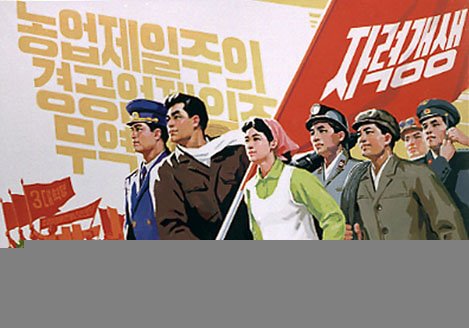South Korean People’s Living Gets Worse
In south Korea the people’s living is getting worse owing to the anti-people and treacherous economic policy of the Lee Myong-bak regime and the daily-aggravating economic crisis.
- Income reduces and prices skyrocket
While the monthly income of the people continuously shrinks due to the economic crisis, in particular, the income of the lower income brackets fell to the minimum so that they were reduced to the poor.
In the meantime, affected by the sharp rise of prices of the international raw materials including oil, in last July the consumer prices rose 5.9% more than that of the same period of the last year, recording the highest level since the foreign exchange crisis in 1998, and the prices of daily commodities including foodstuff jumped to 7.1%.
As a result, people complain that they hardly eke out for the awful rise of consumer prices and the present living is bitterer than that of the period of the IMF trusteeship.
- Tax burden records the highest
The tax burden for a citizen in south Korea this year increased by 510, 000 won more than last year to reach 4.22 million won.
The household debt increased to 38.41 million won as of late March, the highest record in history.
- Tuition fees of university are largest in the world and various diseases widespread
Tuition fees of national and public universities run by the puppet regime or local administrations amount to 10 million won and private universities to 20 million won, increasing 10% more than that of last year, the highest figure in the world.
With the rampant diseases throughout south Korea due to the economic hardships and deteriorating living environment, meningitis patients, for example, increased by 2090 from January to July this year only or two folds of the average number of the last five years.
There are 101 tuberculosis patients among the 20s, 284 patients among the over 70s for every 100, 000 population, so that south Korea is stigmatized as a “country coughing in tuberculosis”.
- Millions reduced to the unemployed
Now the unemployed are 3.37 million, more than 14 % of the labor force.
Among them the completely unemployed who could not work even an hour a week amounted to 800, 000 and the university-graduate unemployed are more than 2.57 million.
In addition to that, if 3.25 million daily-workers and part-timers are included, the actual figure of the unemployed is as many as 6.62 million.
- Sorts of social evils prevail
Due to the living difficulties atrocious crimes including kidnapping, murder and robbery recorded 449, 000 cases in 2006 and 461, 000 cases last year with 10, 000 case-increase every year.
Those who give up any optimism and commit suicide disappointed by the difficulties of job-seeking and livelihood, and various diseases, get more numerous every year. According to a recent report from the puppet police agency the suicides rapidly increased to 13 400 persons last year from 12 900 in 2006.
So, south Korea is now branded in the world as a “kingdom of crime” and a “republic of suicide”.
Though the Lee Myong-bak clique is now busy presenting the so-called “measures for people's livelihood” and “promise of ameliorating the quality of life” in a bid to calm down the complaints and anti-government sentiment of the people, it can never appease the infuriated people.
Thursday, 20 November 2008
Wednesday, 19 November 2008
All-out Struggle for Repeal of Evil Labor Law Declared in S. Korea
All-out Struggle for Repeal of Evil Labor Law Declared in S. Korea
Pyongyang, November 18 (KCNA) -- The south Korean Confederation of Trade Unions (KCTU) held a rally in Ryoju, Kyonggi Province, on November 12 with representatives of trade unions of at least 2,500 work places affiliated to KCTU attending.
Speakers at the rally denounced the authorities for contemplating enacting an evil law banning the payment of wages to the full-time trade union leaders, adding that this is a move to hold in check the trade union activities and stamp out the labor movement.
They also held that the moves of the "government" and the business management side to make a retrogressive revision of "the law on part-time job" would only result in further expanding the part-time job.
The "government" should halt at once the retrogressive revision of the above-said law, they urged.
A resolution read out at the rally declared that KCTU would launch an all-out struggle including a general strike to check the passage of the evil labor law through the "National Assembly".
Pyongyang, November 18 (KCNA) -- The south Korean Confederation of Trade Unions (KCTU) held a rally in Ryoju, Kyonggi Province, on November 12 with representatives of trade unions of at least 2,500 work places affiliated to KCTU attending.
Speakers at the rally denounced the authorities for contemplating enacting an evil law banning the payment of wages to the full-time trade union leaders, adding that this is a move to hold in check the trade union activities and stamp out the labor movement.
They also held that the moves of the "government" and the business management side to make a retrogressive revision of "the law on part-time job" would only result in further expanding the part-time job.
The "government" should halt at once the retrogressive revision of the above-said law, they urged.
A resolution read out at the rally declared that KCTU would launch an all-out struggle including a general strike to check the passage of the evil labor law through the "National Assembly".
Subscribe to:
Comments (Atom)

.jpg)